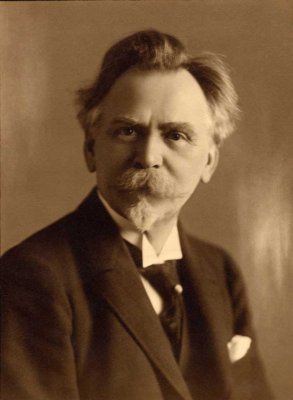Jenö Hubay

Jenő Hubay portrait
Jenő Hubay (1858–1937), the brilliant violinist, composer and educator was considered the most well-known and acknowledged musician of Hungary for half a century. His name remains connected to the establishing of the world famous Hungarian violin school. His father was Károly Huber, the conductor and concert master of the National Theatre. It was from him that he learned the basics of playing the violin, after which he went on to study from Josef Joachim in Berlin. On advice from Franz Liszt he travelled to Paris in 1878 and soon he won over audiences all over Western Europe. At the age of 21 he changed his surname to Hubay to have a Hungarian sounding name.
In 1882 he was appointed head of department at the Conservatoire Royale in Brussels, but on call from Franz Liszt he returned home and supervised violin education at the Conservatory of Budapest for half a century. He was also the director of the Conservatory from 1919 to 1934.
His most famous students: Bram Eldering, Geyer Stefi, Ferenc Vecsey, József Szigeti, Emil Telmányi, Eddy Brown, János Koncz, Imre Waldbauer, Jenő Ormándy, Zoltán Székely, Ede Zathureczky, Endre Gertler, Lóránt Fenyves, Wanda Luzzato, Tibor Varga and Sándor Végh.
From 1886 the Hubay-Popper Quartet was active in Budapest, the first world class Hungarian strings quartet, who were leading figures in the history of Hungarian chamber music for a quarter of a century. At their concerts Ernő Dohnányi, Wilhelm Backhaus, Leopold Godowski and Johannes Brahms have performed several times.

In the "Green Salon" of his home with his wife and two sons, Tibor and Andor in 1929.
Jenő Hubay, with his smooth manner, exceptional personality and intelligence created a wide circle of contacts. He was invited by kings, heads of states, artists and church leaders to their homes throughout Europe, his friends included Mihály Munkácsy, Zsigmond Justh, Jules Massenet, Benjamin Godard, Felix Weingartner and Joseph Krips. In 1894 he married countess Róza Cebrian and in 1907 he himself also received a title from the king, thereby being admitted into the aristocracy.
Hubay was also a successful and prolific composer. Besides several hundred violin pieces and songs he also composed symphonies (Symphony 1914, Dante Symphony) and operas (The Villain of the Village, Moss Rose, Anna Karenina, The Mask). His opera The Violin Maker of Cremona (premiered in 1894 in Budapest) proved to be a world success, performed on several dozen stages throughout Europe within one decade. This was the first Hungarian opera to be performed outside Europe (New York, 1898). The famous violin solo of the 2nd act was often played by the composer himself behind the scenes.
The violin solo from The Violin Maker of Cremona.
(Jenő Hubay – violin, Ottó Herz – piano)
The main work of Hubay is the cantata entitled Ara pacis (The Altar of the Peace), composed between 1915 and 1937 to the text of the hymn to peace by Romain Rolland. Because of its pacific message the piece was banned during the second world war and it was only 6 decades later when the orchestra and choir of the Hungarian Radio premiered it at the Conservatory of Budapest in 2000 with László Kovács conducting.
Jenő Hubay - Ara pacis
(detail)
Jenő Hubay - Mazurka
(Ferenc Szecsődi - violin, István Kassai - piano. A Hungaroton Classic's recording)
